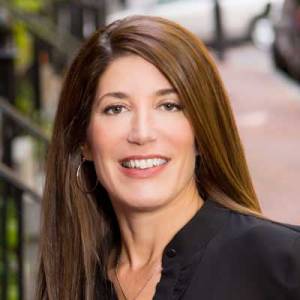What’s going on in Maryland?!
Since 2013, four cities have lowered the voting age in local elections to sixteen from eighteen—the age at which the Twenty-sixth Amendment to the Constitution allows people to vote in federal elections. The first to hand the vote to sixteen-year-olds was Takoma Park, followed two years later by Hyattsville, then Greenbelt in 2017, and Riverdale Park in 2018. A fifth city—Kensington—is considering the move as well. (Glenarden did so in 2016 but raised the minimum age back to eighteen the following year.)
A major reason that’s given to justify lowering the voting age is that people who start voting when they’re young will stay politically active throughout their lives. As Tommy Raskin, a high school senior in Takoma Park, said, “We cultivate interest in democracy by giving people opportunities to participate.” In the first election in which sixteen- and seventeen-year-olds could vote there, the percentage of eligible voters in that age group who went to the polls was twice as high as it was for older voters. And, Takoma Park is not unique. Turnout by younger voters in Austria and Norway is higher than for older voters. Furthermore, research indicates that voting in one election increases the likelihood of voting in the next election by over 50 percent.
Another reason, as supporters in Hyattsville put it, is that if teens can drive, hold jobs, and pay taxes, then they should play a role in deciding who represents them in city government.
In 2015, Ema Smith, who was then seventeen, was inspired by the successes in Takoma Park and Hyattsville. She worked hard for two years with fellow members of Greenbelt’s Youth Advisory Committee to persuade their town to follow the other cities’ examples. They canvassed door-to-door and distributed pamphlets to create dialogue and educate residents about the issue. Ema said, “If you explain the reasoning behind lowering the age, people will often change their minds.”
Actually, Maryland isn’t the only area that allows people younger than eighteen to vote. Sixteen- and seventeen-year-olds can vote in school board elections in Berkeley, California. In addition, some states make allowances for voters before their eighteenth birthday.
- Connecticut, Hawaii, Illinois, Indiana, Iowa, Kentucky, Maine, Maryland, Mississippi, Nebraska, Nevada, Ohio, Oregon, Vermont, and Virginia let students vote in primary elections and caucuses if they will be eighteen by the date of the general election.
- Democrats in Alaska, Kansas, North Dakota, and Washington allow seventeen-year-olds to vote in party caucuses and in the primary if they will be eighteen by the date of the general election.
- Minnesota allows them to vote in presidential caucuses, though not in other primary elections.
-

Vikiana Petit=Holmes Vikiana Petit-Holmes, a high school activist in Massachusetts, is lobbying her legislature to allow sixteen-year-olds to vote in local elections across the state. And, Oregon is considering the idea.
Furthermore, about a dozen countries, including Argentina, Austria, Brazil, and Ecuador, allow sixteen-year-olds to vote. Voters this age also participated in the 2014 referendum on whether Scotland should secede from the United Kingdom, although they cannot take part in other elections.
These efforts are getting national attention. In March 2019, Representative Ayanna Pressley, Democrat of Massachusetts, proposed dropping the minimum voting age in federal elections to sixteen. Speaker of the House Nancy Pelosi, Democrat of California, expressed support for Pressley’s amendment to a voting-rights bill, saying that high-schoolers are especially interested in politics because they take classes in history and government. Nevertheless, Pressley’s proposal failed with 126 House members in favor and 305 opposed. Almost half of Pressley’s Democratic colleagues voted against it, and only one Republican supported it.

Before the official decision was made in Takoma Park, some locals argued that teens younger than eighteen aren’t mature or experienced enough to have a vote and that they would be overly influenced by their parents. In response to Pressley’s bill, Representative Mark E. Green, a Republican from Tennessee, said the idea was “foolish.” Jennifer C. Braceras at the Independent Women’s Forum argued that, at that age, “most kids have little awareness of politics, civics, or American history.” Obviously, if Ema Smith and other youth want to get Pressley’s amendment passed, they have more minds to change. A bill to lower the voting age for presidential elections in Washington, DC, was narrowly defeated in November 2018.
If you’d like more information about organizations that study and promote suffrage for sixteen- and seventeen-year-olds, check out the following:
- National Youth Rights Association’s “Voting Age Status Report”
- VOTE16USA
- FairVote
Then, decide: Do you think people under the age of eighteen should be able to vote? If so, in which elections? To see what it would take to change the age for federal elections, take a look at the chapter called “We Can Change It, Right?” in Fault Lines in the Constitution.

Hi there everyone, it’s my first go to see at this website, and
post is in fact fruitful in favor of me, keep
up posting such posts.
LikeLike
Thanks for a marvelous posting! I seriously enjoyed reading it, you can be a
great author. I will remember to bookmark your blog and definitely will come back
later in life. I want to encourage you to continue your
great job, have a nice morning!
LikeLike
Did you hear of the Swiss watches ?? This site is a collection of watch brands from all over the world. A luxury watch gives you wireless confidence.
LikeLike